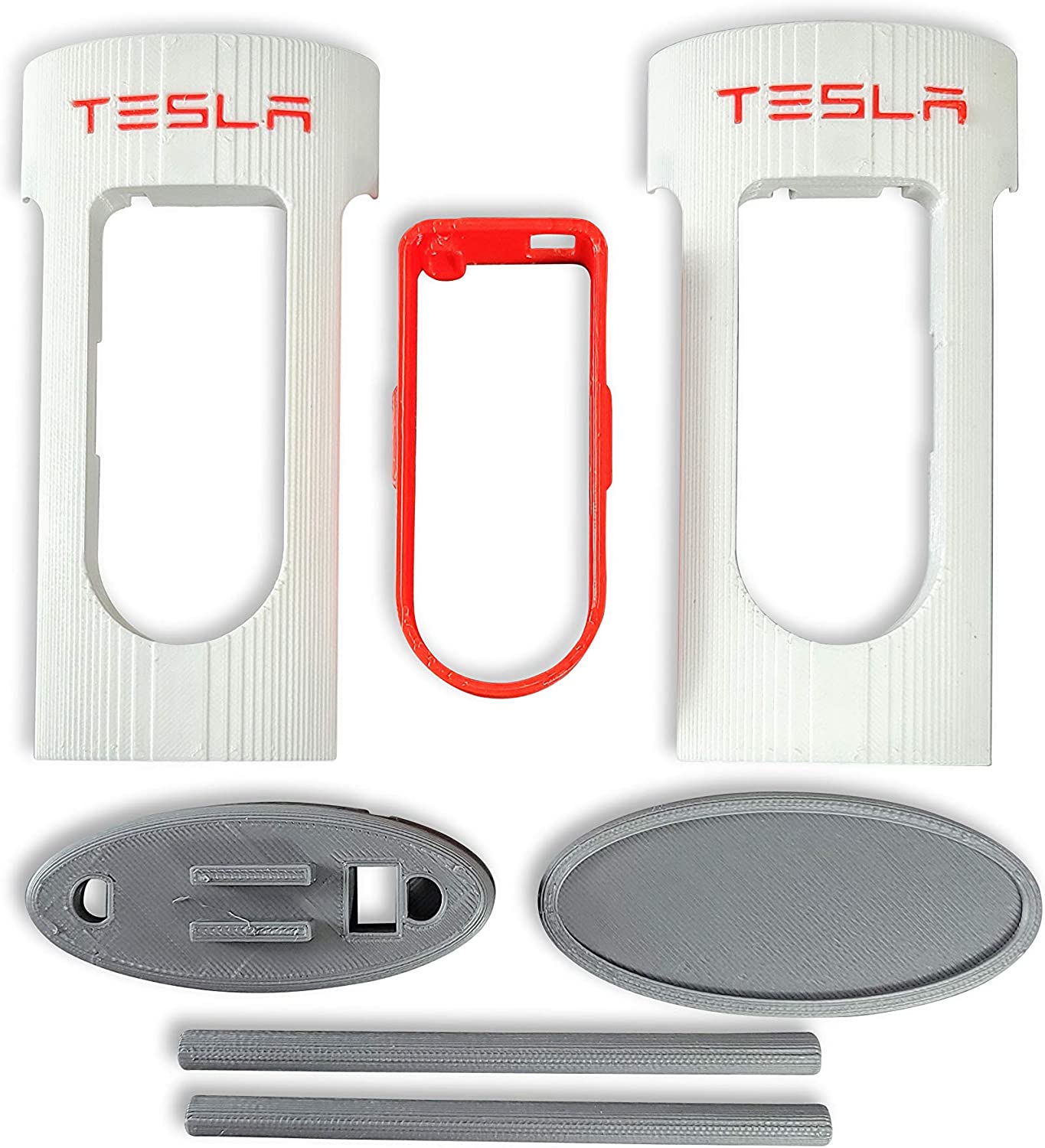
A federal tax credit may be available if you plan to purchase an electric vehicle. This can be in the form of cash, or a reduction on the vehicle's price. But the amount depends on several factors and is not guaranteed. If you plan to claim it, be sure to speak with your accountant or tax professional.
Inflation Reduction Act restructured EV tax credit to ensure it brings more consumers to the table. The credit is available to those who meet certain requirements. For example, you'll need to be a head of household. Also, you need to have a modified average gross income at least $225,000

Battery pack composition is subject to additional requirements. The percentage of components that must manufactured in the United States each year increases by 10%. In 2029, this percentage will increase to 100%. The battery should be at least four kilowatt hours and must be rechargeable from an external source of electricity. The vehicle must be brand new and less than 14,000 lbs in weight.
Before purchasing an electric vehicle, it is important to determine if the vehicle meets the North American production rules. This rule requires that electric vehicles be manufactured or assembled in the United States. To claim the credit you will need an IRS Form 893. You can't claim credit if the car wasn't purchased. Furthermore, once you receive credit, you will not be able sell the vehicle.
The battery that powers the vehicle must also be made in the United States. This is the most difficult aspect of the program. This rule will be gradually implemented over the next nine year, with 90% of battery components being assembled or manufactured in the United States by 2028. If you're thinking of buying an EV, it is worth consulting your accountant and tax professional.
It is also worth looking into the tax software available that can help you claim your EV Tax Credit. This software can help determine how much tax credit you will receive and how to use it to suit your specific circumstances. The software will also help you decide whether or not the EV is an eligible vehicle for the credit.

The material sourcing rule is another thing you will need to consider. This is a complex issue that is much more complicated than people realize. You must ensure that most of the materials used in your battery pack are not from restricted countries. It is also important to make sure the battery comes sourced from a country that has a bilateral free trade agreement. This is to ensure that you are not paying a premium for your electric vehicle's battery.
FAQ
What qualifications are required to become a truck mechanic
Although you don’t have formal qualifications, you have extensive experience with engines and trucks. Your knowledge is valuable as you are able to quickly diagnose problems and work efficiently.
You also have an excellent knowledge of diesel technology which will help you to understand what parts are needed to repair our vehicles.
What qualifications are required to become a mechanic
To become a mechanic, you'll need to pass a series of exams. These include:
-
A general knowledge test
-
A practical exam
-
An apprenticeship test
These tests are meant to help you grasp the fundamentals of mechanical engineering and physics, before you begin your journey as a mechanic.
After passing these tests, you will be eligible to become a mechanic. But, you will still need an apprenticeship. This will include training in the trade.
You'll need to attend classes and workshops to learn everything you need to know about repairing vehicles. Experienced mechanics will also be required.
A mechanic must be highly focused and attentive to detail in order to succeed. Vehicle repairs require you to be very attentive.
To become a successful mechanic you'll need patience. If you don’t enjoy following instructions, this might not be the right career path.
You could make a great career out of your love for cars and the work that goes into fixing them.
How can I fix my automobile as a hobby.
It's a great hobby to take on if you are passionate about cars. You could learn how to repair them, buy parts for them, sell them or just enjoy them. If you are looking for something more, it would be an excellent hobby.
But it is not easy to turn this into your full-time occupation. It takes a lot of dedication and hard work. And you'll need to invest a lot of money too.
You might not have a compelling reason to get involved in the car industry.
Is a career in automotive mechanic promising?
The automotive industry is full of exciting opportunities for those who are dedicated to excellence. It is important to work hard and learn as much from others as you can in order to succeed in this industry.
Communication skills are important as customers and coworkers will often be your main focus. You must also be willing and able to travel long distances, which can make it difficult to commute.
Take classes at community colleges or universities if you're interested to work in automotive. Many schools offer programs designed specifically for students interested auto repair, sales, and customer services.
If you decide to pursue a degree, you should study mechanical engineering. You can get your bachelor's degree in as little as four years.
Many companies will hire students straight out of college. So, it is wise to begin searching for employment while you are still able to study part time.
Once you've completed your education, you'll probably need to complete some form of training before being able to take up a position as an automotive technician.
This means you'll need pass exams like the Automotive Services Excellence (ASE), certification exam. This test covers topics including engine maintenance, brakes, steering systems, suspension, and more.
Once you pass the ASE test, your license can be applied for by the National Institute for Automotive Service Excellence.
A license permits you to repair private vehicles. In exchange, you'll receive compensation based on the number of services performed.
It is important to remember that not all states require licensing. If you intend to work in another state, however, you will need a license.
Some states won't issue licenses until you have completed a certain amount training. This may be the case for you.
What are the basics of car mechanics?
To work as an auto technician, you don’t need to know much about cars. All you need to know is how to fix things. This is why most people get started with simple jobs such as changing brake pads or tires. Then they move on to more difficult repairs.
You need to be able read and comprehend diagrams, follow written instructions and adhere to basic principles of good practice. You will also need to understand how parts should be replaced or repaired.
It is important to understand that vehicle repairs should only be attempted by those who have received the proper training. This is especially true for expensive components, such as transmissions and engines.
Even though you won’t need to know much more about cars, you will still need to have an in-depth understanding of mechanics and physics. This involves understanding how engines work and how brakes work.
It is also important to remember that you will need to be able to handle many situations. For example, you may find yourself working on a vehicle that has been involved in a serious accident. Additionally, you will need to have experience with handling accidents and breakdowns.
Finally, you need to be willing and able to quickly learn new skills. Not only will you need to be capable of diagnosing problems, but you also need to be able perform simple maintenance tasks like tightening nuts.
What does it matter which college I attend?
Not really. In terms of getting into the auto industry, there is no distinction between colleges. You will find that some schools offer better programs than others. If you are looking for something more specific, consider going to another school.
What are the requirements for an automotive technician?
You need to have high school diploma or GED and good grades in English as well as maths. Also, you must be able read and write. After passing a written test, you will need to complete a series of practical tests before you are allowed to begin working.
Statistics
- 52% of Mechanics in the United States think their salaries are enough for the cost of living in their area. (indeed.com)
- According to the BLS, the median annual salary for automotive service technicians and mechanics in the United States was $44,050 in May 2020. (uti.edu)
- The U.S. Bureau of Labor Statistics (BLS) reports that the job outlook for automotive service technicians and mechanics is expected to decline by 4% from 2019 to 2029. (indeed.com)
External Links
How To
How to avoid auto mechanic scams
Scamming by auto mechanics can be a serious problem. On average, a consumer spends $1500 per year on auto repairs. This means that many people are willing to profit from this situation. But, knowing what to look for can help you avoid falling prey to scammers. These are some ways to spot scammers before they take your money.
-
Never pay upfront. You should never pay upfront if someone asks. Always ask for payment once work has been completed. If you're unsure whether something is legitimate, call the Better Business Bureau (BBB) at 1-888-322-8138. They can provide guidance and assistance.
-
Ask for references. Contacting previous customers is the best way to make sure you are dealing with a reliable service provider. Also, it's a good idea check online reviews. It's important that any company you deal is reputable.
-
Background checks are essential. You should never hire anyone without doing a background check. Check the BBB website to see if there are any complaints against the business. Also, verify that the vehicle's license plate number belongs to the business owner.
-
Do not be afraid to leave. Even if a business appears legitimate, scammers will try to get you to pay too much. If you feel that you have been exploited, don't be afraid to walk away. There are plenty more businesses to choose from.
-
Do not be lured into "free" service. There are many companies that offer free inspections and estimates. These companies usually charge exorbitant fees later. Be sure to ask about additional fees before signing anything.
-
Avoid being pressured. If a company offers you a great deal it is because they believe they can charge you less than what you are worth. If you find yourself in a situation where you are being pressured to buy something, it's likely a scam.
-
Quality products are important. You want to make sure that the repair shop uses high-quality parts. For example, if you need new brake pads, you shouldn't go to a place that uses cheap pads. Instead, shop for brakes.
-
Get multiple quotes. It is important to compare prices across shops. This will increase your chances of getting a fair price.
-
Keep records. It's important to keep track of all the details surrounding your repair. This includes receipts, invoices and warranties. It is also a good idea to keep track of any addresses or phone numbers that you receive.
-
Stay informed